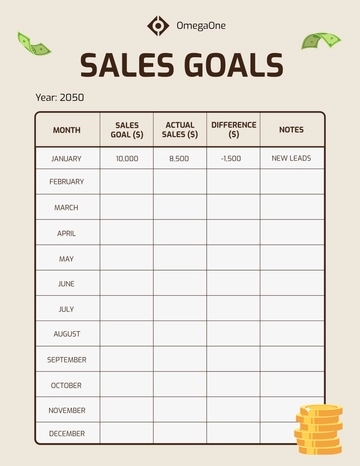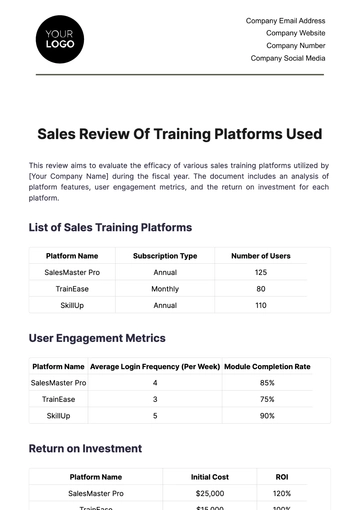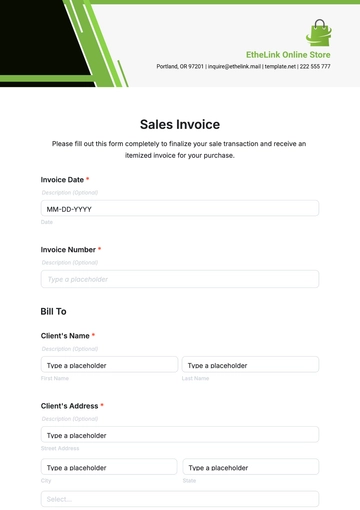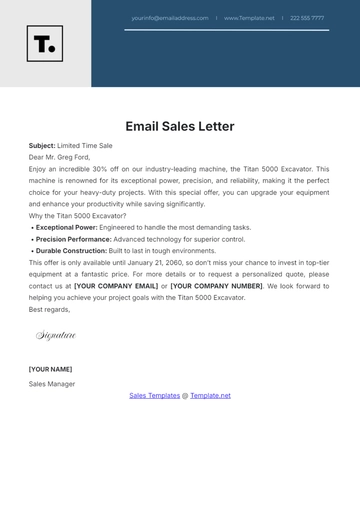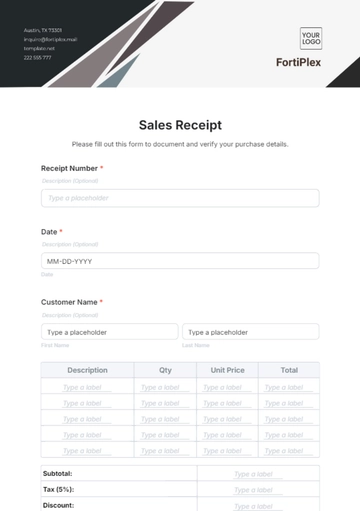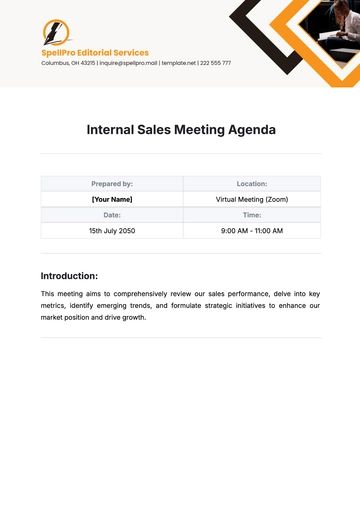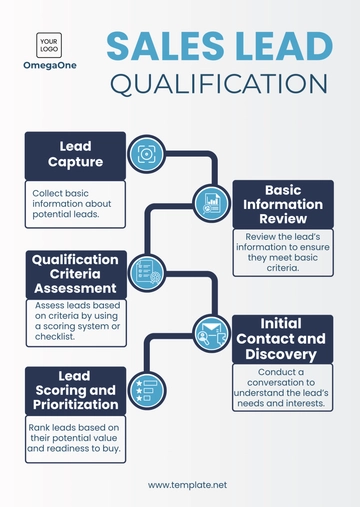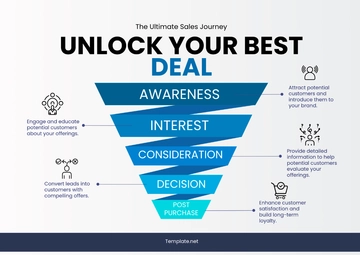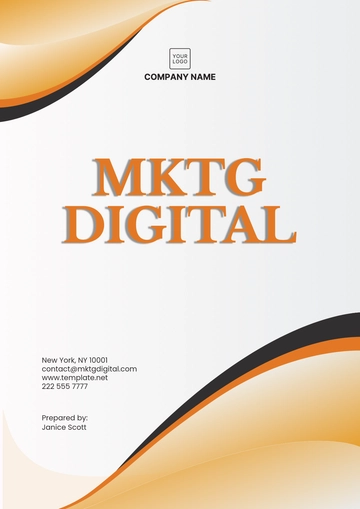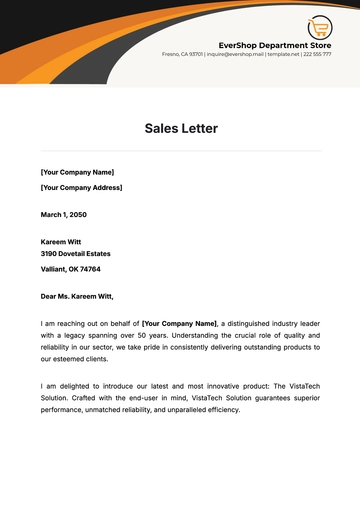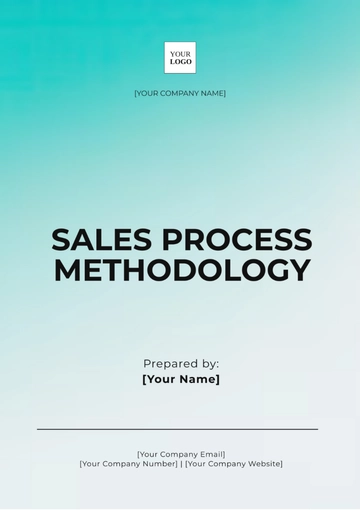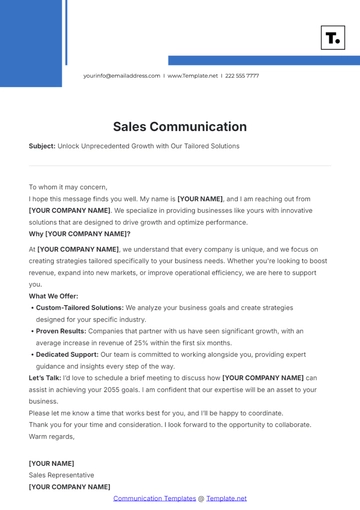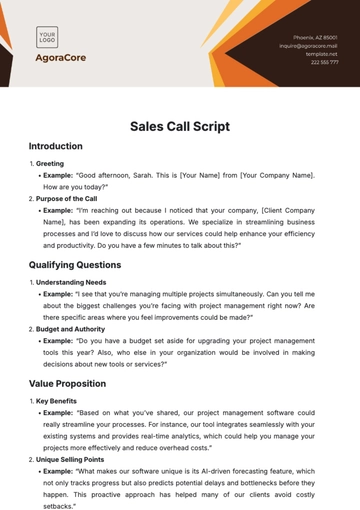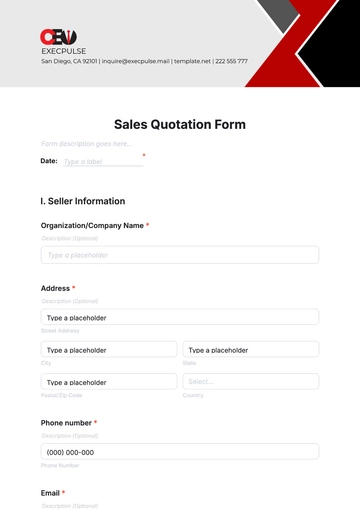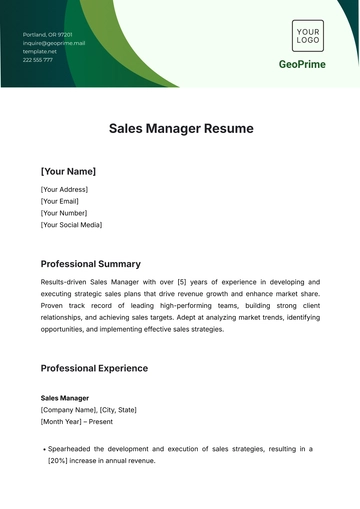Free Sales Document on Managing Trade Show Logistics
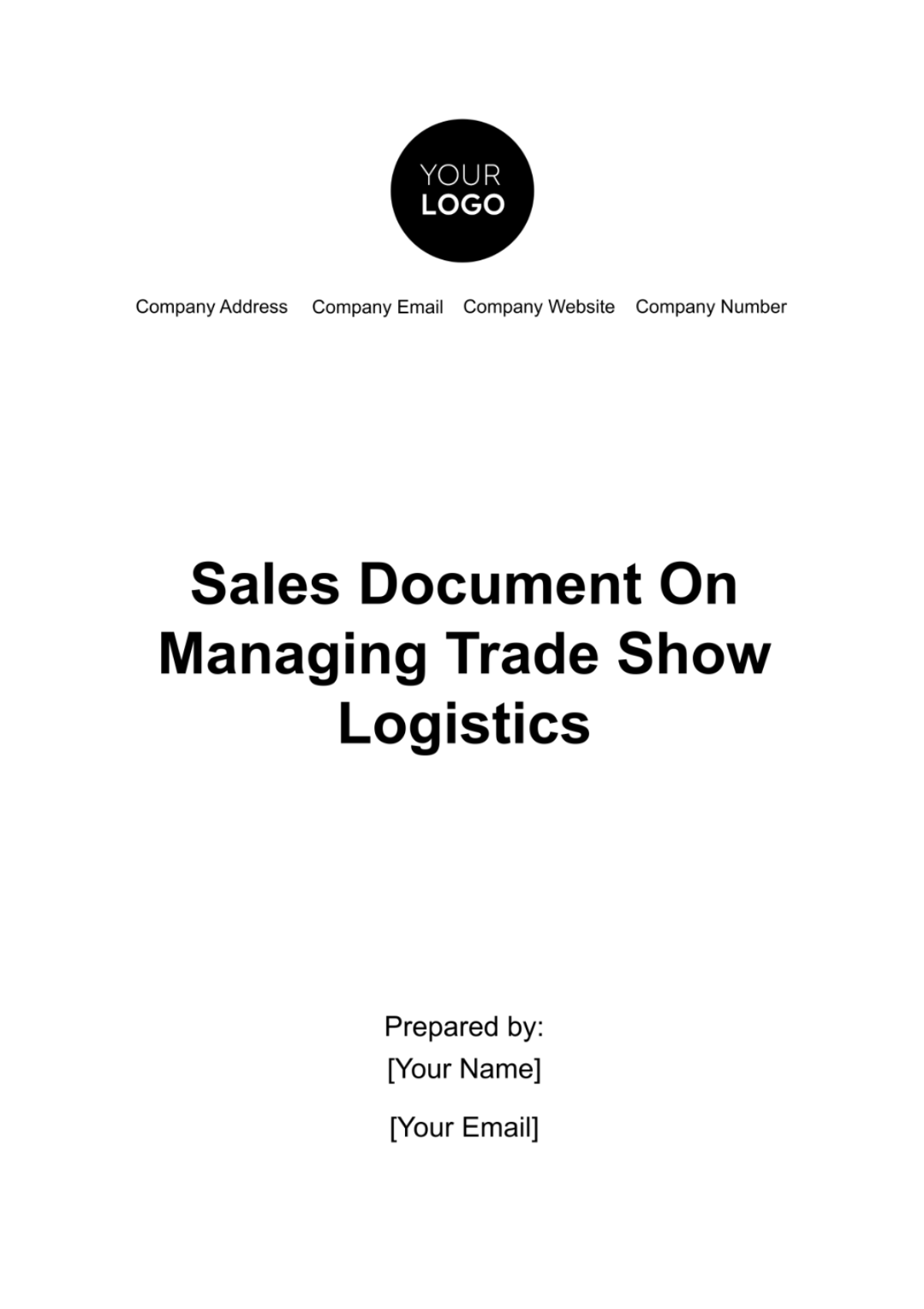
I. Introduction
Purpose Of This Guide
In the dynamic realm of trade shows, where first impressions are lasting, and opportunities are abundant, the purpose of this guide is clear: to empower you with the knowledge and strategies necessary not just to participate but to excel. We understand that your trade show experience is a crucial investment, and this guide is your blueprint for making that investment a resounding success.
Target Audience
This guide is meticulously tailored for a diverse audience of trade show enthusiasts, whether you are a seasoned exhibitor seeking to sharpen your skills or a novice entering the world of trade shows for the first time. It is equally valuable for trade show coordinators, marketing teams, and executives who wish to deepen their understanding of trade show logistics. No matter your background, you will find within these pages the expertise and guidance needed to transform your trade show participation into an unforgettable success story.
II. Understanding Trade Shows
Trade shows serve as dynamic platforms for businesses to showcase their products and services to a diverse and engaged audience. They represent a unique opportunity to connect with potential customers, industry peers, and decision-makers. Understanding the significance of trade shows is crucial for making the most of these events. This section delves into:
The role of trade shows in your industry and market.
Trade shows facilitate face-to-face interactions and relationship building.
The potential to unveil new products, innovations, and solutions.
The competitive advantage gained through trade show participation.
Benefits Of Effective Logistics
Effective trade show logistics can make or break your participation. This subsection explores the advantages of well-managed logistics, such as:
Enhancing your brand's reputation with a seamless and professional presence.
Maximizing cost-efficiency by avoiding last-minute expenses.
Ensuring your team is well-prepared and focused on your objectives.
Building a foundation for future trade show success.
As we proceed, we will equip you with the knowledge and strategies to harness these benefits and transform your trade show presence into a powerful marketing and networking tool.
III. Pre-Show Planning
In the world of trade shows, success is born in the planning stages. Pre-show planning is the foundation upon which you will build your entire trade show experience. This critical phase involves a series of meticulous steps designed to ensure that you are well-prepared and equipped to meet your objectives effectively. Below is an overview of the key elements of pre-show planning:
Phase | Task | Description |
|---|---|---|
1 | Setting Clear Objectives | Define your goals and expectations for the trade show. What do you aim to achieve? Whether it's lead generation, brand exposure, or product launches, clear objectives will guide your planning. |
2 | Budgeting For Success | Develop a comprehensive budget that covers all expenses, from booth rental and design to marketing materials and staff travel. Careful budgeting helps you allocate resources wisely. |
3 | Timeline And Task Management | Create a detailed timeline that outlines all the critical milestones leading up to the event. Assign responsibilities and deadlines for each task to ensure a smooth execution. |
Pre-Show Planning Overview
In this table, we've summarized the critical phases of pre-show planning, including the tasks involved and their descriptions. This structured approach will enable you to kickstart your trade show preparation on a solid footing.
The first phase focuses on setting clear objectives. A well-defined objective is like a North Star guiding your trade show efforts. It helps you tailor every aspect of your trade show participation to meet your specific goals.
The second phase emphasizes budgeting for success. By meticulously planning your budget, you'll be better equipped to manage your finances throughout the trade show process, ensuring that every dollar is allocated to activities that drive your success.
The third phase underscores the importance of timeline and task management. It's crucial to establish a well-structured timeline that keeps all team members on the same page and ensures that every task is completed on schedule.
By following this systematic approach to pre-show planning, you'll pave the way for a successful and stress-free trade show experience, setting the stage for achieving your objectives and maximizing your return on investment.
IV. Selecting The Perfect Venue
Selecting the perfect venue is a pivotal decision in your journey towards trade show excellence. The choice of venue can greatly influence your success, making it imperative to consider the following key aspects when pinpointing the ideal location:
Criteria For Venue Selection
In this section, we delve into the critical criteria for venue selection, including
Geographical Advantage
Analyzing the location's accessibility for your target audience and logistics efficiency.
Space And Layout
Assessing the available square footage, booth placement options, and overall layout to ensure they align with your booth design and marketing strategies.
Amenities And Services
Evaluating the venue's amenities, such as power sources, internet connectivity, and catering options, to meet your specific needs.
Costs And Contracts
Understanding the financial aspects, including rental fees, additional costs, and negotiating favorable contract terms.
Accessibility And Parking
Ensuring the venue's accessibility for both exhibitors and attendees, with considerations for parking facilities and transportation options.
Brand Alignment
Determining if the venue's reputation and image align with your brand, as this can impact your company's perception by trade show attendees.
Negotiating Contracts
A crucial aspect of venue selection is negotiating contracts. In this subsection, we guide on:
Effective Contract Review
Strategies for carefully reviewing contracts to identify hidden costs, limitations, and obligations.
Negotiation Tactics
Tips and techniques to negotiate favorable terms, including rental rates, booth locations, and services.
Legal Considerations:
An overview of the legal aspects of venue contracts and the importance of seeking legal counsel if necessary.
Selecting the ideal venue is a meticulous process that requires a comprehensive understanding of your trade show objectives and how the chosen location can help you achieve them. By mastering this crucial step, you set the stage for a successful and impactful trade show presence.
V. Logistics Management
Logistics management is the backbone of a successful trade show participation. In this section, we delve into the intricate details of planning, executing, and optimizing the logistics aspect. A well-managed logistics operation ensures your presence at the trade show runs smoothly and efficiently.
Logistics Management Overview
Aspect | Key Considerations |
|---|---|
Booth Design And Construction | Innovative booth designs Materials and construction Layout and signage |
Transportation And Shipping | Shipping methods and carriers Customs and import/export considerations Tracking and delivery |
Storage And Inventory Management | Warehousing options Inventory tracking systems Secure storage and accessibility |
Booth Design And Construction
Innovative Booth Designs: Your booth is your brand's visual identity at the trade show. We explore cutting-edge designs and layouts that grab attention and facilitate visitor engagement.
Materials And Construction: From lightweight and easy-to-transport materials to durable and eco-friendly options, we cover the spectrum of choices for building your booth.
Layout And Signage: Learn how an efficient booth layout and impactful signage can guide visitors, convey your message, and optimize space utilization.
Transportation And Shipping
Shipping Methods And Carriers: Explore the pros and cons of different shipping methods and carriers, ensuring your exhibit arrives on time and in pristine condition.
Customs And Import/Export Considerations: Navigating international trade shows? We guide customs regulations and import/export compliance.
Tracking And Delivery: Stay in control with real-time tracking and secure delivery options to the trade show venue.
Storage And Inventory Management
Warehousing Options: Discover suitable warehousing solutions for storing your exhibit materials before and after the event.
Inventory Tracking Systems: Effective inventory management prevents last-minute surprises. We discuss digital tools and strategies to keep track of your assets.
Secure Storage And Accessibility: Ensuring your exhibit materials are secure is paramount. Learn about safety measures and easy access to stored items.
VI. Marketing And Promotion
In the competitive world of trade shows, marketing, and promotion are the engines that drive your success. This section outlines the key strategies for creating a buzz around your presence at the event and ensuring maximum visibility. Explore innovative ways to capture the attention of potential clients and partners, and discover how to effectively convey your message to your target audience.
VII. Staffing And Training
In the fast-paced world of trade shows, your team is the backbone of success. The section on Staffing and Training is designed to help you assemble the right team and equip them with the knowledge and skills required for exceptional performance. Below, we've included a comprehensive table outlining key roles and responsibilities:
Role | Responsibilities |
|---|---|
Event Manager | Overall event coordination and logistics |
Booth Staff | Interact with visitors Showcase products/services |
Sales Representatives | Engage in direct sales conversations Qualify leads |
Marketing Specialists | Promote your presence Social media management |
Technical Support | Technical Support Handle equipment setup Troubleshoot technical issues |
Training Coordinator | Develop training programs Coordinate training sessions |
Recruiting Your Team
Selecting the right personnel is crucial. Look for individuals who not only possess the required skills but also align with your company's values and objectives. Recruitment should start well in advance to allow time for training and onboarding.
Training For Excellence
Training is a critical element of your trade show success. Create a structured training program tailored to the roles and responsibilities of your team members.
Consider the following training components:
Product/Service Knowledge: Ensure that your team is well-versed in your offerings, enabling them to confidently discuss benefits and features.
Sales Techniques: Equip your sales representatives with effective sales techniques, including lead qualification, objection handling, and closing strategies.
Booth Etiquette: Train your booth staff to engage with visitors professionally, answer questions, and showcase your products/services.
Marketing Strategies: Instruct your marketing specialists in promoting your presence through various channels, including social media and traditional marketing.
Technical Proficiency: Technical support members should be adept at setting up equipment and resolving any technical issues swiftly.
Coordination Skills: Your training coordinator should be well-versed in organizing and conducting training sessions effectively.
By investing in the training and development of your team, you ensure that they are well-prepared to represent your company at the trade show. This table and guidance serve as a foundation for assembling a skilled and cohesive team that will make a significant impact at the event.
VIII. Leveraging Technology
In the dynamic landscape of trade shows, staying ahead requires harnessing the full potential of cutting-edge technology. This section delves into leveraging technology to streamline operations, enhance visitor engagement, and extract valuable insights for a competitive edge.
Digital Tools For Seamless Management
Explore a suite of digital tools designed to simplify logistics, from project management and communication platforms to event planning software. Learn how to integrate these technologies to create a unified and efficient system for trade show management.
Data Analytics And Metrics For Informed Decisions
Discover how data analytics can be your compass in the trade show journey. We explore techniques for data collection, analysis, and interpretation. Uncover how data-driven decisions can refine your strategies, optimize your budget, and measure the true impact of your trade show participation.
Incorporating technology as a cornerstone of your trade show logistics not only streamlines your processes but also positions you at the forefront of innovation, giving your company a distinct advantage in this competitive arena.
IX. Financial Control
In the dynamic world of trade shows, financial control is the linchpin of your success. This section dives deep into the art of managing your trade show budget with precision and prudence, ensuring that every dollar invested yields maximum returns.
Key Elements Of Financial Control
Budget Allocation
Craft a budget that aligns with your trade show objectives. We provide a comprehensive breakdown of potential expenses, from booth design and promotional materials to travel and accommodation. By allocating your resources strategically, you'll be well-equipped to achieve your goals without unnecessary expenditures.
Cost Control Measures
Explore a range of cost-saving strategies without compromising the quality of your trade show presence. Learn how to negotiate effectively, source cost-efficient materials, and leverage vendor relationships. Our guide equips you with actionable tips for cost reduction while maintaining a high standard of presentation.
Contingency Planning:
Anticipate unforeseen costs and prepare for unexpected challenges. We guide you through creating a contingency fund to address emergencies or last-minute requirements, ensuring that your trade show experience remains smooth and stress-free.
By mastering financial control, you'll not only optimize your budget but also safeguard your investment, guaranteeing that your trade show participation is a cost-effective venture that generates substantial returns on your company's objectives and reputation.
X. Showtime Execution
Showtime is where your meticulous planning culminates in action. Here, we'll provide a concise summary of what you need to ensure a flawless execution during the event:
Booth Setup And Arrangement:
Arrive early to set up your booth.
Double-check the layout and aesthetics.
Ensure all promotional materials are readily accessible.
Create an inviting atmosphere to engage visitors.
Managing Visitor Engagement
Train your team to be approachable and knowledgeable.
Implement interactive activities or product demonstrations.
Collect visitor information for follow-ups.
Address inquiries and build meaningful connections.
Handling Unforeseen Situations
Prepare for contingencies with a well-equipped emergency kit.
Stay adaptable and calm in unexpected scenarios.
Have a clear chain of command for decision-making.
Prioritize visitor satisfaction and problem resolution.
XI. Conclusion
In conclusion, this guide has provided a comprehensive roadmap for mastering trade show logistics. Let's recap the key takeaways:
Setting clear and achievable objectives is the foundation of success.
Effective budget allocation and cost control are essential for a positive ROI.
Careful venue selection can significantly impact your trade show experience.
A well-designed booth and effective marketing collateral will draw in visitors.
Technology and data analytics are powerful tools in logistics management.
A well-trained and motivated team can make all the difference.
On-site execution demands meticulous planning and adaptability.
Post-show evaluation is your compass for future improvements.
Remember, excellence in trade show logistics is not a destination; it's a journey. With the knowledge and strategies presented in this guide, you are well-equipped to embark on this journey and continually enhance your trade show endeavors.
The commitment to improvement, adaptability, and dedication to providing outstanding experiences at trade shows will set you on the path to lasting success. Your journey towards trade show excellence starts now.
- 100% Customizable, free editor
- Access 1 Million+ Templates, photo’s & graphics
- Download or share as a template
- Click and replace photos, graphics, text, backgrounds
- Resize, crop, AI write & more
- Access advanced editor
The Sales Document On Managing Trade Show Logistics Template offered by Template.net is a meticulously crafted resource for businesses seeking to streamline their trade show operations. This comprehensive template provides a structured framework for organizing logistics, optimizing resource allocation, and ensuring the seamless execution of trade show events. With a user-friendly format and precise guidance using our AI editor tool, it empowers organizations to enhance their trade show efficiency and success. Elevate your event management with this invaluable resource.





